Scumbags and faggots: It’s time to talk about Fairytale of New York
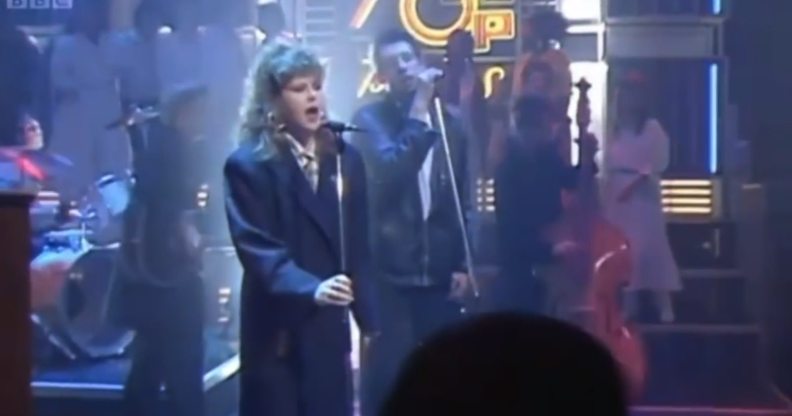
It’s that time of year again: our news inbox is flooded with complaints about Fairytale of New York.
The Christmas track from Kirsty MacColl and The Pogues is more popular than ever – and was even crowned the winner of Pointless host Richard Osman’s World Cup of Christmas Songs poll on Twitter this week.
The song, featuring two lovers hurling insults at eachother over Christmas, is a staple for shopping centres, supermarkets and radio stations during the festive season.
Indeed, it’s so omnipresent during the Christmas season that some have taken to playing the ‘Pogues game‘, in which the goal is to somehow avoid hearing it playing in public.
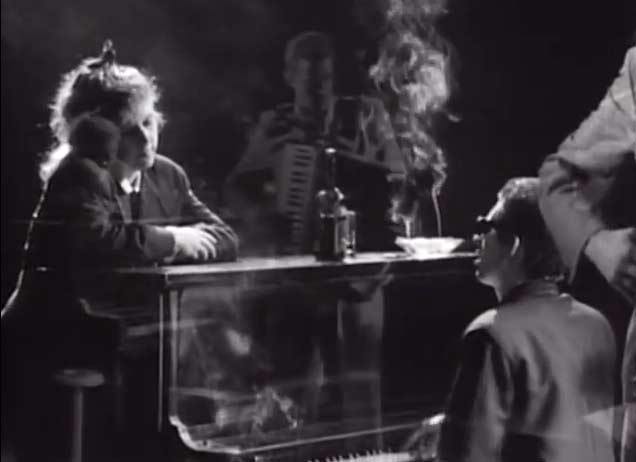
But the popular 1987 track includes one line that would simply never make it into a contemporary song in 2017.
“You scumbag, you maggot, you cheap lousy faggot”, sings MacColl in the song’s second verse, “Happy Christmas you arse, I pray God it’s our last.”
The line, barely-noticed by straight listeners, has long grated in the mind of gay listeners.
And while a lot don’t mind, clearly some really do.
So far this year, a ton of people have taken issue with the song, asking: wait, why are we all so comfortable with a song with the word ‘faggot’ in?
And the detractors do pose some uncomfortable questions.
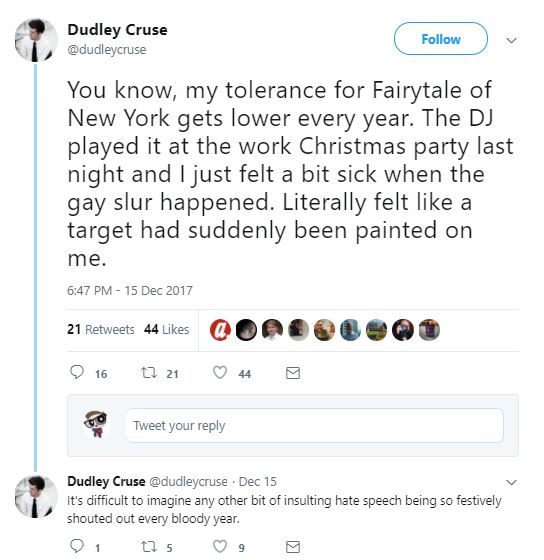
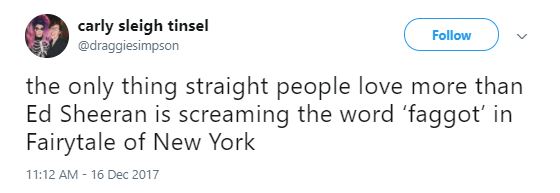
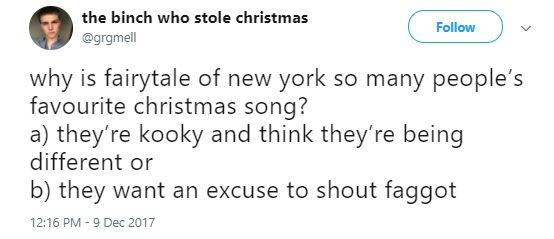
Why should straight people have a right to scream a homophobic slur? Why should gay people be forced to listen to a slur primarily used by violent homophobes? And really, would we ever accept a racist epithet used in the same way?
None of those questions have a particularly good answer, and yet the song continues to be pretty much everywhere.
Scumbags and faggots
Of course the song also has its defenders, gay and straight.
The crux of their reasoning seems to be that the song is old, and that art and music should always be viewed in the context of its time.
This suggests the word “faggot” was somehow less unacceptable when the track was recorded, 30 years ago.
But the context of gay people in 1980s New York seems far removed from a jaunty Christmas tune.
A few years before the song’s release, the Reagan administration stood silent as ‘gay cancer’ – later identified as AIDS – claimed thousands of innocent lives. In the highest office of the land, politicians laughed about the deaths of gay men.
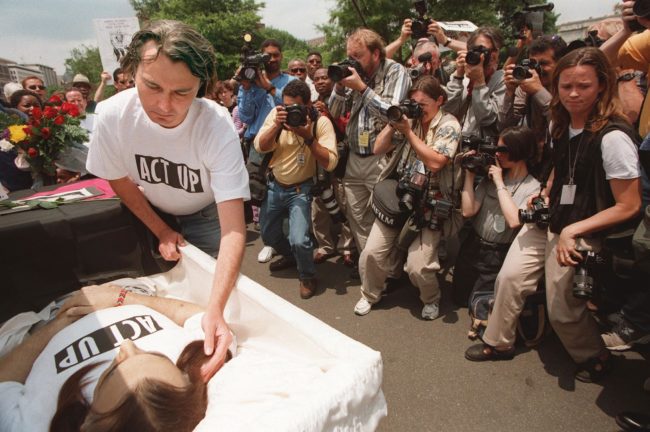
An AIDS activist, strokes the hair of his dead lover during a protest in front of the White House (Photo by JAMAL A. WILSON/AFP/Getty Images)
The media was engaged in a manufactured anti-gay moral panic. Eddie Murphy ranted about “faggots looking at my ass” and it was hailed as the pinnacle of comedy.
LGBT people faced stigma, ridicule, and a denial of basic human decency.
As one doctor put it at the time: “We used to hate faggots on an emotional basis. Now we have a good reason.”
The word ‘faggot’, so cheerfully sung, is the same word that was hurled at gay men battling for their right to live.
That’s the societal context for the word ‘faggot’ at the time – one of malice, ignorance, and objective homophobia.
It’s difficult to argue that the word has no meaning when pejoratively tossed around inside a song, and it’s difficult to defend the example it sets.
A modern dilemma
Today, decisions about the song are not ultimately about whether the word is artistically justifiable, but what to do about it now it’s there.
MacColl died in 2000 and never recorded an official ‘clean’ studio version of the song.
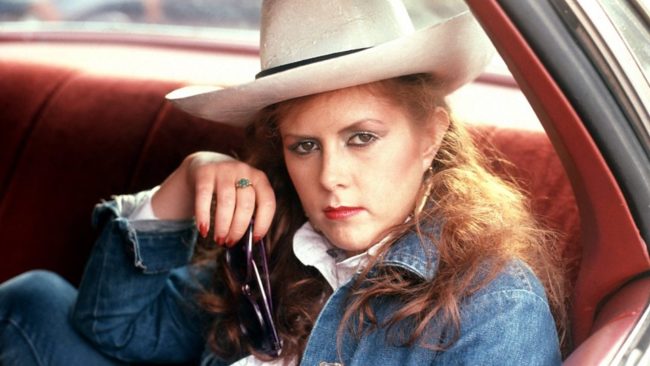
Kirsty MacColl
Facing the dilemma, some stations opt to play digitally-edited or crudely censored versions of the song.
Responding to a backlash a few years ago, Radio 1 opted to bluntly bleep the offending word “because some members of the audience might find it offensive”.
The decision ignited a furious row over “politically correct” culture, and Radio 1 later succumbed to a pressure campaign and opted to play the song uncensored.
But when playing the song in full can upset and alienate a portion of your audience: really, is it worth it?
The answer from MacColl herself appears to have been ‘no’.
Within a few years of the song’s release she had already begun to drop the word ‘faggot’ when performing live.
On Top of the Pops in 1992, she swapped out the line for “you’re cheap and you’re haggard” – a line also used by Ronan Keating for an ill-fated cover version.
And following her example, the line has been consistently cut from most contemporary covers.
Ed Sheeran, whose cover of the song this year has racked up 1.7 million views on YouTube, also opted to replace the line with “you cheap lousy blagger”.
But covers, live versions and digital tweaks will never replace the original track, and outright censorship is clearly not a solution.
Ultimately, given the longevity of Christmas music, the song likely is likely going to remain a staple for years to come. And for people who are uncomfortable with the lyrics, that means it’s probably going to continue to grate.
But perhaps it can serve as a reminder – not of a mythical time when it was acceptable to say ‘faggot’, but of a time when people just didn’t care about how unacceptable it was.

